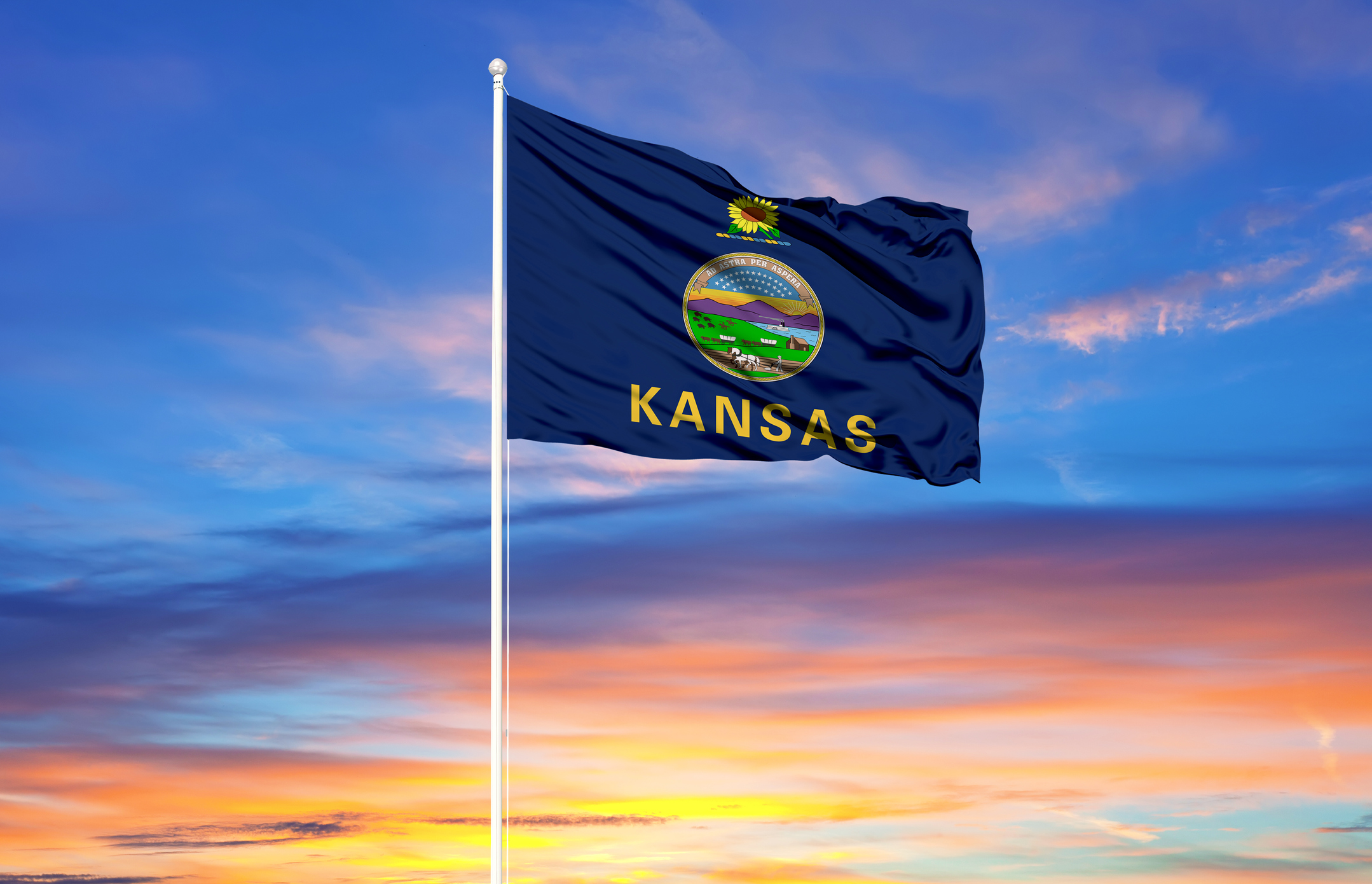
Kansas state tax: Overview
Kansas can be a moderately tax-friendly state for certain retirees, particularly those with a public pension income.
Residents of the Sunflower State are fully exempt from taxes on their public pension. Not to mention: Kansans' tax savings recently got even better thanks to a new landmark tax relief package signed into law last year.
As reported by Kiplinger, Gov. Laura Kelley signed a measure that eliminated Kansas's tax on Social Security income, reduced property and income taxes, and is set to increase the state standard deduction and child and dependent care credit. The new legislation is projected to usher in nearly $2 billion in tax cuts for Kansans over the next 5 years.
On the downside, Kansas does carry a high sales tax. The state is the ninth most expensive in the nation when considering average combined state and local sales taxes.
However, some taxpayers might consider Kansas income tax rates a positive, depending on how much they earn and where those earnings come from.
In the News: Some residents of the Sunflower State might have already noticed some savings on their grocery bills this month after a reduction in the Kansas ‘food tax’ went into effect on the first of this year. Shoppers now pay a 2% Kansas state sales tax on grocery items, down from the 4% they paid last year.
“This reduction is a step toward eliminating the state sales tax on groceries completely, which will happen in 2025,” Gov. Kelly said in an announcement.
For more information, see Kansas 'Food Tax' Cut: How Much Will You Save?
[Data for this state tax guide was gathered from a number of sources including the Census Bureau, the state’s government website, and the Sales Tax Handbook. Property taxes are cited as a rate percentage rather than the assessed value.]
Kansas income taxes

Kansas income tax rates might provide relief to some taxpayers with higher incomes. That's because the highest state income tax rate is 5.7% for 2025.
Kansas Republican lawmakers recently enacted a flat income tax plan over the veto of Democratic Gov. Laura Kelly. Senate Bill 269 would reduce income taxes to a single rate of 4%, according to local reports.
Gov. Kelly said in a statement that the income tax cuts would cost the state up to $1.3 billion annually.
However, Kansas has an "intangibles tax" levied on unearned income (for example, income from savings accounts, stocks, and bonds) by some localities.
Kansas income taxes in retirement: Kansas is no longer one of the states that tax Social Security retirement benefits. A broad tax relief package signed by Gov. Kelly went into effect in June 2024, eliminating state taxes on Social Security income in Kansas.
Income from federal government-designated Kansas state and local government, as well as military retirement plans, is tax-exempt. Railroad benefits are also exempt.
Kansas Income Tax Range: Single, Married filing separately and Head of household
Kansas Income Tax Range: Married filing jointly
Kansas sales tax
The statewide levy is 6.5%. Localities can add as much as 4.25%, and the average combined rate is 8.654%, according to Tax Foundation data.
Kansas repealed its grocery sales tax in 2025, but a local sales tax will still apply.) The elimination of the state sales tax on groceries is expected to save shoppers $13 million per month this year, according to the governor's office.
- Clothing is taxable.
- Prescription drugs are tax-exempt.
How much are property taxes in Kansas?

The average effective property tax rate in Kansas is 1.35%, and the median property bill is $2,536. However, Kansas offers programs that can help some homeowners reduce their property taxes.
Kansas Property Tax Breaks for Retirees
SAFESR: Some homeowners may be eligible for the ‘Kansas Property Tax Relief for Low Income Seniors’ or SAFESR. The program offers a property tax refund program equal to 75% of the property taxes paid. Kansas requires that taxpayers meet specific criteria to qualify.
Additionally, taxpayers can claim either the Homestead or SAFESR refund, not both.
Kansas gas tax (motor fuel)

Gasoline: $0.24 per gallon
Diesel: $0.26 per gallon
Kansas taxes on alcohol and tobacco
Kansas estate and inheritance taxes
There is no estate tax or inheritance tax in Kansas.







